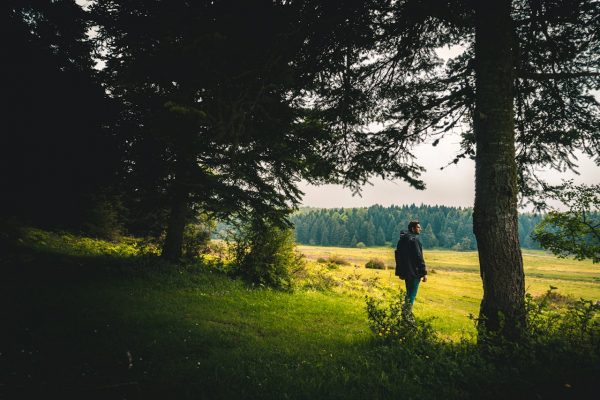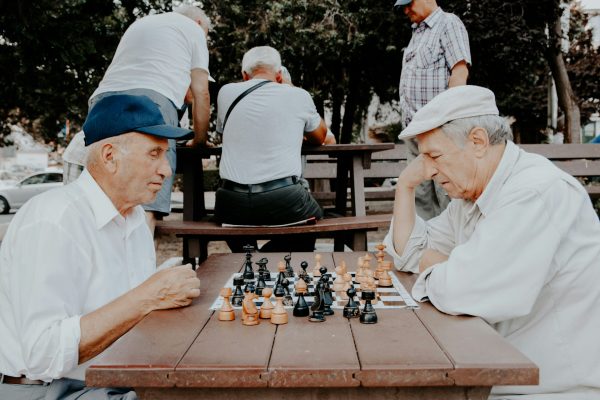In the spring of 2016, I had the privilege of facilitating a university seminar titled What Makes You Click: The Sociology of Online Dating. Every Wednesday, I met with ten students to interrogate the changing landscape of romance in an era of technological ascendancy. While the bulk of the weekly discussions centered around academic publications, I consciously framed the pedagogical environment to reflect the tone of a book club. We commenced every class with a check-in activity, where each person shared the triumphs and trials of their personal and dating lives that week. During discussions, students contributed copious amounts of individual anecdotes and reflections. To me, these personal insights undergirded the uniqueness and integrity of a course like this, where sociological frameworks were deployed to help curious minds make sense of banal life situations and expound the intricate social patterns that govern their emergence.
The only thing was, as the semester progressed, I began to realize that there was, in fact, nothing banal about the stories that my students brought to the table and that the organizational tenor of social ‘patterns’ was becoming increasingly tottery. Students offered anecdotes that illuminated great particularities, and some of their experiences were so personal and intimate that juxtaposing them with empirical findings became an exercise of reductionism. The need to understand behavioral norms and organizational patterns, two important tenets that underpin the intellectual domain of sociology, soon came to be supplanted by a set of irresolvable contradictions. Online dating affords us greater access to potential partners, and yet the road to finding romance has never been more isolating; we can abide by every single data-driven recommendation, but we can never quite control and master the science of reciprocity; we are told to buck superficial acts of ‘relationshopping’ and engage in ‘relationshipping’ instead (i.e., by giving people second chances), but such forms of individual resistance are often futile given how unforgiving the dominant structure is. While these tensions and nuances are by no means counterproductive, they only add to our growing confusion vis-à-vis locating oneself in today’s ever-evolving world of romance.
While I can confidently say that my students were certainly not under the illusion that they were going to walk away with the blueprint for modern dating by the end of our four months together, it still stung a little when many left each class with more questions asked than answered. Initially, I told them that this is what they should expect, for I believed in a pedagogical approach that encouraged self-exploration and discovery. However, as I battled the classic notion of ‘the more you learn, the less you know’ in my own psyche, I started to question if I were doing this right, and where the purpose of my scholarly pursuit in online dating lied. As I became increasingly flummoxed, I found myself getting invited to guest lecture on the topic of online dating, where I felt obliged to speak from a position of authority—a position I had difficulty reconciling myself with. As I situated myself in 200-person lectures, I had to pretend that I had it all figured out and that I was capable of offering tips and advice that could transform lives. Little did my audience know that standing in front of them was an equally confused, lost, and perplexed 20-something-year-old with an inconceivable amount of failed romance tucked under his belt.
I concluded every one of these lectures with a Q&A session. The questions I got, for some reason, were always posed in a seemingly dissociated manner, where personal implications were obscured: “What do you think online dating is doing to long-distance relationships;” “Do you believe that online dating is making it harder for people to sustain long-term relationships?” I would often reply: “Are you asking this because you are in a long-distance relationship or going through a rough patch?” Sheepish grins and belying nods were typical follow-up responses. I probe not because I am nosy, but for the sake of suggesting to these young thinkers that perhaps more than any other areas of inquiry, the sociology of love is and will always be motivated by a sense of urgency to self-discovery and understand personal experiences. As I offered pointers, I told them of what the science was revealing, where data was leading us, and what empirical indicators one ought to look out for. That said, at the end of the day, I always qualified myself by reminding them to trust their intuition, for if there was one thing I learned from my seminar and dating life, it was that for love, there are no cookie-cutter solutions or methodological shortcuts—only experiences, mistakes, gut-feelings and a helpless yet intoxicating sense of incertitude.
By the time I wrapped up my seminar, I was no longer concerned with conceiving a grand take-home message that I initially assumed my students needed. Perhaps the point of studying love sociologically is not to provide answers or decipher patterns, but to gain an appreciation for the messy, unpredictable and precarious world that we live to love in. Regardless of how much we read, how hard we learn, and how deep we analyze, the road towards finding companionship is perhaps always going to be rooted in caprice and uncertainty. Perhaps this is the reason why we study love sociologically; perhaps the sheer knowledge of this fact alone is the purpose of it all.






